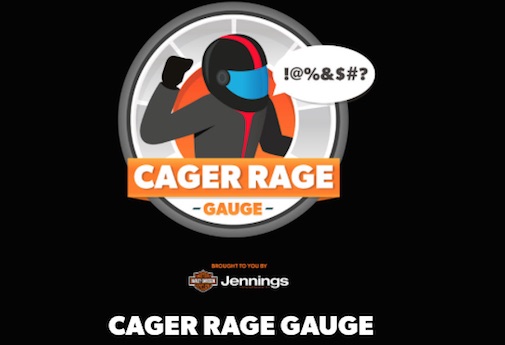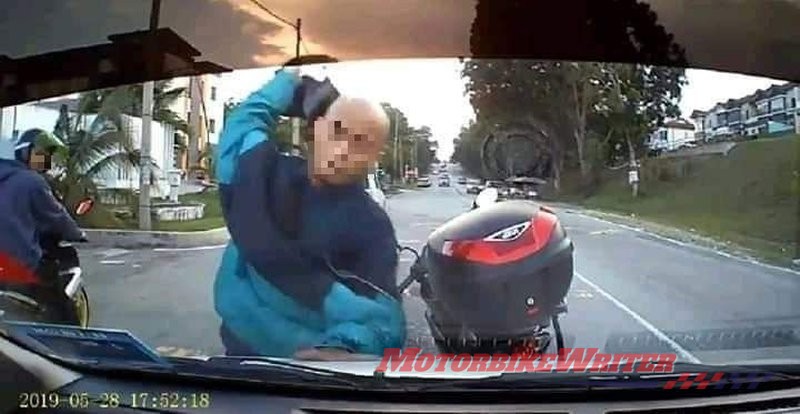Riders seem to cop more road rage than other motorists.
This could be because we are seen as road menaces, making loud noises, zipping through the traffic (even though filtering is legal) and skipping to the front of the queue at the lights.
It could also be because we are seen as non-threatening because of our size. It’s easy to menace another road user if you are in a big pickup and they are on a scooter or motorcycle!
And if we react to road rage, we are likely to come off second best.
So, as riders, we have to learn to avoid it and/or live with it and not react which can escalate the situation.
We have previously published tips on avoiding road rage from Queensland Police Senior Sergeant Ian Park who created the #ridesafely4me Facebook site.
“Unfortunately, it seems to involve individuals from all road user groups as both the victims and the perpetrators,” he says.
“Motorcyclists and bicyclists are of course the most vulnerable due to the lack of physical protection around them. But the fundamentals of personal safety of the roads are no different to anywhere else,” he says.
Click here if you would like to read Ian’s tips to avoiding road rage.
Now Aussie car rental company StressFreeCarRental.com have come up with a guide to tackling road rage before it occurs.
Their following tips are relevant to all motorists and riders can certainly learn something from them:
Stay in the right: It is never a good idea to copy what another driver has done on the road, if they have undertaken a bad or wrong move. In the heat of the moment, it may seem a good idea to try to replicate them or make a gesture towards them, but it is unproductive. Stay grounded and level-headed.
Emotional intelligence: Often people get behind the wheel when there has been an argument in their life, and they may feel very down or frustrated. Then they have to turn their attention to driving, with the potential to put themselves, their passengers and other road users in danger. Always take a few moments to prepare for your journey at these times.
Music: This can be a good diversion from the stresses of the day. By playing some classical music or your favourite track, it can impact your mood for the better and enable you to counter stressful situations more readily.
Dangers of eye contact: People who feel they have been wronged on the road may have the natural instinct to look at the driver in the other vehicle, but this is rarely a good idea. If a situation has the potential to escalate, making eye contact with the other driver is not a good idea.
Time: it is worthwhile allowing some ‘injury time’ in footballing terms for your journey, to ensure you are not racing against the clock to reach your chosen destination and meaning you won’t get as frustrated in a traffic hold-up.
Flexible thinking: No matter how good people are at driving for the majority of the time, mistakes happen. Don’t allow yourself to get swept away with anger if you see something has gone wrong on the road in front – stay focussed to know how to avoid danger and remain calm.



